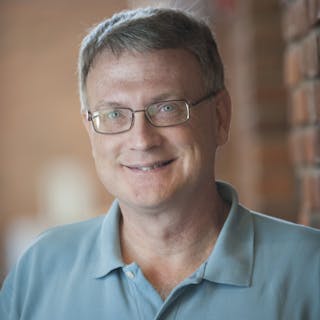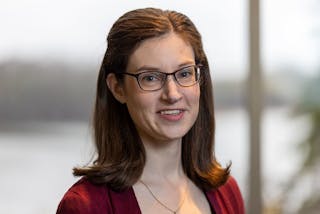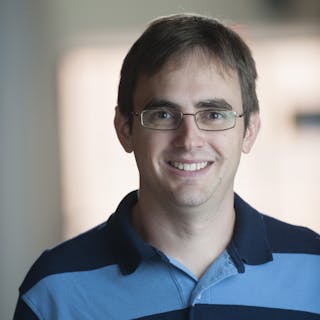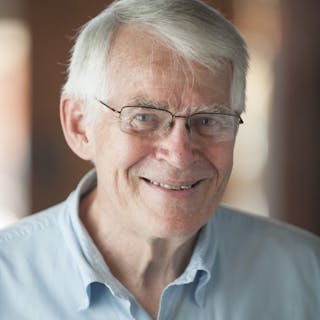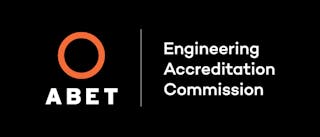
With an applied physics: optics degree, you’ll gain specialized expertise in optics, preparing you for diverse career opportunities in technology, research, and academia.

Contact us
Request info
Interested in learning more about Bethel's applied physics: optics major? Fill out this simple form and we'll send you more information soon.
Connect with a counselor
They’ll answer your questions, connect you with professors, and help you find the right time to visit campus. They’ll be there every step of the way to help make applying to Bethel as smooth as possible.
Courses and skills
What skills will I develop?
Throughout the B.S. in Applied Physics with an optics emphasis, you’ll develop a diverse set of skills and competencies essential for success in the field of optics.

Geometric optics
Master the principles of geometric optics, including reflection, refraction, and image formation, and learn to analyze and design optical systems such as lenses, mirrors, and optical instruments.
Wave optics
Explore the wave nature of light, studying phenomena such as interference, diffraction, and polarization, and learn to apply wave optics principles to analyze and manipulate light waves for various applications.
Laser physics
Gain an understanding of laser operation, including the principles of stimulated emission, population inversion, and laser amplification, and learn to design and characterize laser systems for applications in research, industry, and medicine.
Photonics
Learn about the properties and behavior of photons, the fundamental particles of light, and explore the principles and applications of photonics technologies such as fiber optics, photonic devices, and optical communication systems.
Experimental optics
Develop practical skills in optical experimentation, including laser spectroscopy, optical imaging, and optical measurements, and learn to design and conduct experiments to investigate optical phenomena and validate theoretical models.

Academic plans
Map out your time at Bethel—from day one to your diploma. Your course schedule is designed to help you grow, gain skills, and become who you’re meant to be.
Learning opportunities
What experiences will I have?
Hands-on learning is at the core of all Bethel majors. That means you’ll find numerous opportunities to get involved, apply what you’ve learned, and gain experience by studying abroad or completing amazing internships. And Bethel’s size and vibrant community will allow you to pursue ways to get involved right away.

Hands-on research
Engage in cutting-edge research projects in the department’s Atomic and Molecular Optics (AMO) Lab, where you can explore topics such as laser cooling, quantum optics, and nonlinear optics under the guidance of experienced faculty mentors.

Conference presentations
Showcase your research findings and academic achievements at prestigious conferences such as the Optics and Photonics Winter School and Workshop, providing you with valuable opportunities to network with professionals and researchers in the field of optics.

Internships and industry partnerships
Gain practical experience through internships at leading technology companies, research laboratories, and government agencies, where you can apply your skills in real-world settings and build professional connections.
Real-world impact
What can I do with an applied physics degree?
Upon completing the B.S. in Applied Physics with an optics emphasis, you’ll be well-prepared for graduate school and a wide range of career opportunities in technology, research, and academia.
Optical engineering
Design and develop optical systems and devices for applications such as imaging, sensing, telecommunications, and medical diagnostics.
Photonics research
Conduct research in photonics technologies such as fiber optics, photonic devices, and integrated optical circuits, contributing to advancements in areas such as data communication, renewable energy, and biophotonics.
Laser physics
Explore the principles of laser physics and optical spectroscopy, developing new laser systems and techniques for applications in scientific research, materials processing, and medical therapy.
Biomedical optics
Apply optical techniques such as microscopy, spectroscopy, and imaging to study biological tissues and processes, contributing to advancements in areas such as medical imaging, diagnostics, and therapy.
Academic research
Pursue graduate studies in physics, optics, or a related field, conducting research in university or laboratory settings, and making significant contributions to scientific knowledge and innovation.

Start your journey
Explore Bethel for yourself
Visiting campus is the best way to learn about Bethel and our majors. As you try out academic and campus life at Bethel, you can attend a class, chat with students, meet professors and coaches, tour campus, and get a taste of life in our program.
Faculty mentors
Meet your professors
You’ll learn alongside faculty who are distinguished scholars and faithful Christians. They’ll know you by name and invest in your success.
Student Support
Your support team
At Bethel, you’ll experience a community where you belong. And that means you’ll be able to access numerous tools for your academic success—tutoring, mentors, study help, and more.
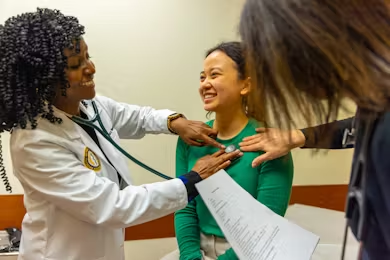
Career coaching and preparation
A dedicated team is here to empower you to lead a purposeful life. Career coaches will help you build a resume, pursue internships and jobs, and provide support at every step of the way.

Academic advising
No matter your goals, you’ll find support from your advisor. They’ll help you plan your courses and will provide support as you complete your degree and start a successful career.
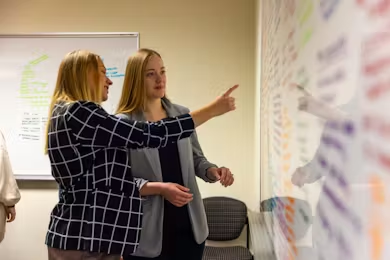
Tutoring and academic support
The Academic Enrichment and Support Center (AESC) will be your first stop for academic support. You’ll find help in building study skills, academic counseling, and more.
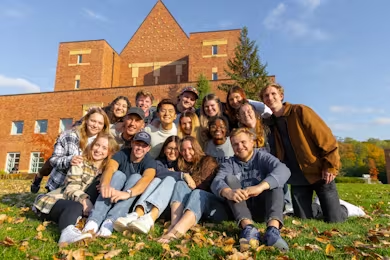
Faith formation
As you develop your faith, you’ll have support from our Campus Ministries team. From Chapel to Bible studies, you’ll have numerous opportunities to explore and grow in your faith.

Accessible education
Tuition and financial aid
We want you to understand from the beginning what a Bethel education costs. That’s why we made it simple. Beginning in the 2025-26 academic year, tuition for the College of Arts & Sciences will be $25,990—down from $44,050. This more accurately reflects what you can expect to pay, empowering you to make informed decisions and become who you're meant to be.

Become A Bethel Student
Apply now
You belong at Bethel. If you're ready to see who you could become, start your free application today.
Find your fit
Explore related programs
Bethel’s small size, strong community, and liberal arts focus allows you to personalize your education by adding additional majors or minors. In fact, about 30% of students double major—and many pursue degrees in vastly different disciplines.



Explore the full lists:



